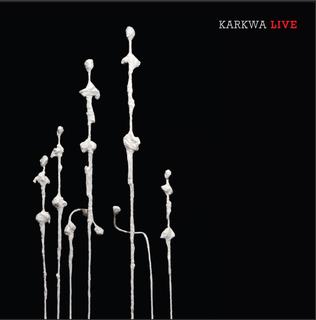Well, a long, tumultuous week has passed since attending the 2010 Polaris Music Prize gala at Toronto's Masonic Temple, where I had the honour of being a member of this year's 11-member Grand Jury panel having the final say on who had created the past year's best album in Canada.
The adventure, to say the least, was enlightening, and it's something I will not soon forget.
Naming Karkwa's masterful Les chemins de verre, contrary to Globe & Mail music scribe Brad Wheeler's somewhat obtuse analysis, was far from a foregone conclusion.
In the aftermath of the Polaris handing out its $20,000 -- for the first time in its five-year history -- to a Francophone band from Montreal, sparks flew. Overnight, following Wheeler's mathematically challenged assertion (in a piece that was nonetheless rather flattering to Karkwa) and, perhaps, purposefully inflammatory statement that the Grand Jury had been "stacked" with a veritable "Bloc quebecois" of voters ensuring a Karkwa majority, the Web became aflame with vitriolic rebuttals coming from all sides, most of all from the Quebec press.
Here are a few things I can safely state without breaching any kind of understood "confidentiality agreement" regarding the process during the Grand Jury deliberations, which is also something I was invited to comment on in a radio interview with Radio-Canada Vancouver (in French, of course) last Friday.
There was no Bloc. Yes, there were more French-speaking Grand Jury members this year than in past years (four out of 11 -- two from Montreal, one from Moncton, and myself here in Vancouver -- which obviously isn't enough to create a majority). There were also more Francophone records in contention than ever before with two, Radio Radio's Belmundo Regal and Karkwa's, in the running, which probably says something about the 180-plus national jury members' voting pattern more than anything else. I haven't lived in
Quebec in close to 10 years, I've been, much to my chagrin, slightly disconnected from the Francophone scene over there while covering music on this side of Canada, and I have to say that while my early round votes prior to being invited to join the Grand Jury did include both French albums (both stellar by any standards), they were far from being my top picks at the time (that's no secret, I wrote about them on this very blog).
After living with those 10 shortlisted albums day in and day out for a month prior to the grand debate in the Masonic Temple's lugubrious "war room," forerunners became clear. Karkwa's was easily one of them, and so were a few other albums on the shortlist. Dissecting and analyzing each album was painstaking work that each Grand Jury member took very seriously, something that lead to a few meaningful and emotionally charged arguments the night of the gala. How close any of the other ones came to garnering top honours isn't something I can divulge (in fact, all three voting rounds nudging more albums out of contention each time were done on secret ballots, so I can't even say for sure), but the debating wasn't one-sided. Far from it. It could've easily swung in favour of another album during the final voting round, but it didn't.
Here's why: Karkwa's record speaks a universal language. It didn't take a "Bloc quebecois" to convince any of the anglophone jurors of Les chemins de verre's merits. It just made perfect sense when you stopped and really listened to it. And following Karkwa's win, even Wheeler's readers came to the album's and the band's defence in the story's comments. In the following week, the album became a hot topic on Twitter. It topped Justin Bieber in sales on iTunes. Based on artistic merit and just a plain visceral response? Absolutely 100 per cent valid. And as with any other year, many were surprised and a few were not.
Now, the drama isn't as strong this week as it was last. But Karkwa's Polaris win accomplished, quite inadvertently, many great things. It got Anglo Canada looking closer at the Francophone scene, using Karkwa (and maybe a bit of Radio Radio's wacky Frenglish/Chiac hip-hop) as its launch pad (yes, there is more great French music out there than Malajube). It made Quebec look at the Polaris Music Prize more seriously, something it wasn't really prone to doing in the past, considering the Prize often gives off a strong "Toronto-centric" vibe.
In the end, the 2010 Polaris Music Prize may have just signaled that it has truly grown into something that is fiercely and passionately embraced by Canadian music fans, who are looking up to the Prize to entice them to look further and excite them about the prospect that there is always something else, something grand and unexpected, lurking around the corner.
Now go listen to Les chemins de verre and let it amaze you. It is a rock record for the ages -- sad yet hopeful, grandiose and atmospheric, and goshdarned beautiful. Trust me, even if you don't speak a word of French, you'll understand when Louis-Jean Cormier softly sings the closer Le vrai bonheur that sometimes we miss out on what really matters because we fail to fully open ourselves to what's right in front of us.








Aucun commentaire:
Enregistrer un commentaire